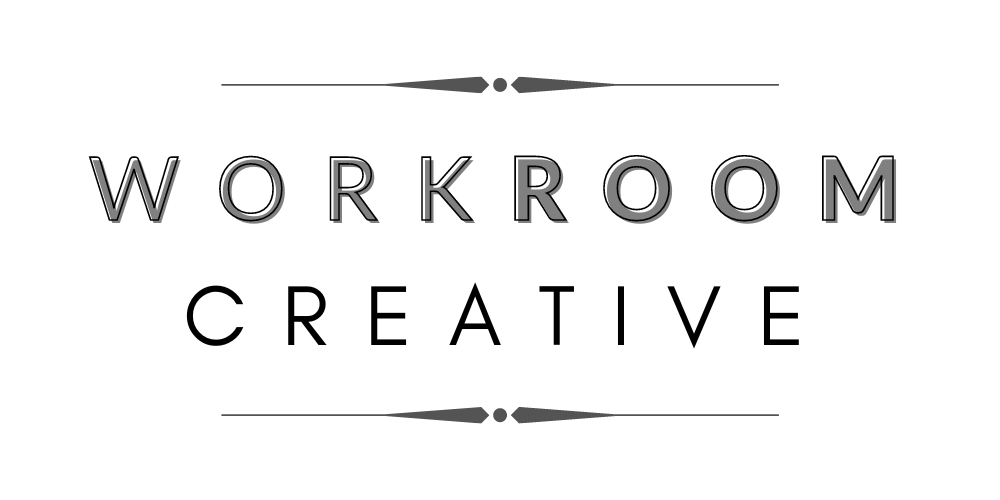Blog Layout
Start Your Business
Peter Hayes
10 Steps to Review Before Starting Your Small Business
Step 1: Establish Market Fit & Customer Need
Before you go too far down the road of establishing that sand store in the desert, do some basic research to make sure your idea is viable. Market research can (and should) be conducted using a variety of approaches. Examples include; personal interviews, focus groups, community feedback, social media polls, and competitive analysis & demographic surveys.
Talk to a wide variety of people and stay open to learning, understanding different perspectives, and refining your ideas.
Step 2: Ensure You Are In It To Win It
Commit to working on your project a specific number of hours per day or per week. Don’t be shy about asking a trusted friend to hold you accountable. Most importantly, be honest with yourself.
Set a Go/No-Go date 2 or 3 months ahead. This will allow you the opportunity to readjust your expectations if needed based on what you have learned through research and business planning.
Step 3: Start Drafting Your Business Plan
A solid business plan is a must-have and an invaluable aid to getting your thoughts in order. This will be an ongoing part of your planning and will need many revisions. Make friends with it and don't worry about making it perfect yet. Some key elements:
1. Mission Statement: Why do you want to start the business?
2. Company Goals: What are your critical milestones for success?
3. Business Type: Sole Proprietor, LLC, corporation, non-profit, partnership?
4. Financial Details: Startup costs, Profit & Loss, financing needs, …
5. Marketing Plan: Who is your target customer and how will you reach them?
The less you know about your industry, the more critical the business plan is. Though it is always important.
Step 4: Think About Money - A Lot
Start deciding how (and in what proportion) you will be funding your business; savings, bank loan, investors, partners, bootstrapping? Also, get yourself familiar with some basic spreadsheets and financial terminology: projections, profit/loss, start-up costs, equity, liability…
Think carefully about what the best and worst case financial scenarios will be. It is important to spend the time and do the math - over and over. You need to account for ALL your costs and be able to make a reasonable profit.
Be real with yourself and your family about the risks and rewards. Understanding all the time, money, and opportunity costs is critical at this point.
Step 5: Establish Brand Identity
What type of name will your business have? How formal or friendly, unique, funky, or informative? Think about colors for your walls, packaging, and website. What do colors communicate anyway? Spring for a professional logo design. From this you will be able to build a strong identity that can be used widely across all your marketing collateral: website, flyers, business cards, emails, t-shirts, packaging, signage.
Note: Its a good idea to think ahead regarding naming best practices and possible pivots that your business may need to make. If you spend time building a name/brand that may need to be repositioned as you grow and learn, you may not want to be locked into an ultra-specific name. Think “Joe’s Chocolate Speciality Shop” vs. “Joe’s Candy Store”. Of course, there is also an argument to made for making the business name to be as informative as possible, so make the decision that is right for your business. And ask your community for feedback - again.
Step 6: Create A Marketing Plan
You'll greatly benefit from outlining a plan for the entire first year. Make note of the major holidays and any special occasions that your industry celebrates. Planning ahead will help you stay ahead of important announcements. Remember that holiday marketing starts well before the actual holiday hits. Give your printer, designer, developer, decorator generous lead time so they can do their best work.
Be sure to consider your demographics and your location. What is the most effective channel for your target audience? Email, flyers, advertising, word-of-mouth, referrals?
Step 7: Build Your Team
You most definitely can not do this alone, so in order to be successful, its a good idea to consider who is on your team.
First and foremost, consider your potential customers as your critical teammates - what can you do for them and what can they do for you? What does your relationship look like?
Also, you will need to work with the practical players like lawyers, accountants, assistants, developers. These specialists know more that you do and you will rely on them for advice and opinions on which you make some potentially large business decisions so choose carefully.
Your friends and family are your people and your support network. Keep them excited and ask them to help spread the word. Don;’ underestimate the power of personal word-of-mouth and brand ambassadors. Also, take a few minutes to watch this Seth Godin talk
about building your Tribe.
Step 8: Establish Success Metrics
Think ahead 3 months, 6 months, 1 year after your opening. How much will you need to have earned? How many customers will have needed to click on your 'Buy' button or walked through your door? Review your financials and set you goals for success. Then, after you are open, monitor metrics closely and adjust tactics as needed to make sure you are hitting those targets.
Also, work on the nitty gritty details:
register the business name
create tax id number
apply for necessary licenses
establish a business bank account
determine insurance needs
Step 9: Reevaluate Steps 1-8
Review, revise, redraft, test, reiterate, experiment, dream, doodle, repeat.
Finally, though these next 2 seem contradictory, they are equally important:
- always get second opinions
AND
- always trust your instincts.
Step 10: Open For Business!
Have a soft launch to work out any potential kinks, and consider a 'Grand Opening' as a marketing opportunity. That is when you celebrate - not before. Then, you'll need to get right back to work - after all, it’s your passion right?
More Blog Posts

By Peter Hayes
•
August 20, 2020
Thursday Morning Coffee Early every Thursday morning, I hop onto a Zoom call with a small group of other small business owners. We drink our coffee or tea and share local news. This specific group is geared towards very local connections. In fact, it was originally proposed as a monthly in-person meeting, but due to Covid, it was moved online. It also morphed into a friendly weekly get-together where personal and local news is shared in addition to pure 'business' talk. Make Connections, Share Ideas, Learn From Others Our group has had guest speakers on such relevant topics as SEO in addition to providing a platform for bouncing ideas off other small business owners. It has been a way to learn from others in a wide variety of fields - from financial planners and real estate professionals to photographers and counselors - the insight and breadth of knowledge is inspiring. Its also a great place to ask for small favors like reviewing and/or promoting articles on LinkedIn or other social media. Start Your Own I highly recommend researching on Nextdoor, LinkedIn, or Facebook to find your own local small business group. If you can not find one, start your own! It is an amazing way to meet with others who share your challenges and have great ideas to share.

By Peter Hayes
•
July 15, 2020
The title of this post may sound backward, because, for obvious reasons, the goal of any business is to energize potential employees (like potential clients, which they are) - not to turn them off. But many HR/marketing/leadership team members would and should be surprised to learn that their company regularly does exactly this. There is, in fact, a single surefire way to turn someone against your brand - and that is to treat (intentionally or not) job applicants with contempt, disrespect, and rudeness. How? By failing to send a rejection letter. Broad personal experience as well as the experiences of too many friends and family show me that without a doubt this is a consistent and widespread issue. So how can a company - especially one whose mission is theoretically to ‘attract top talent’ - ensure that they do not negatively impact their reputation through their poor treatment of candidates? The answer, again, is simple: send one timely, sincere, and empathetic email. As anyone who has been a job hunter has experienced, there is often already a lack of good-faith communication in the search/interview/hiring process. The system in general needs significant improvement. But for the scope of this article, let’s focus on this one. The issue - the fact that candidates who have engaged in the hiring process are simply left hanging with no communication - is, I believe, partly due to process issues (for example, having a disorganized approach to interviewing and interview follow-up), but I suspect that it is has a good deal more to do with the uncomfortable nature of saying ‘no.’ If this is the case, it is time to address that discomfort within your organization, no matter what size. Big or small, if your company is not proactively treating ALL candidates with respect and reasonably transparent communication, especially in issuing rejections, it is unequivocally harming your business.

By Peter Hayes
•
June 23, 2020
SCORE is the nation’s largest network of volunteer, business mentors. They have approximately 10,000 volunteers in more than 250 chapters nationwide. Most, if not all SCORE mentors bring real-world business experience. They are typically working and/or retired business owners, executives and managers who have been through the same challenges and decisions that many entrepreneurs are facing today. I have personally worked with a number of volunteer mentors in a few different cities and have always found their advice to be honest (sometimes a bit too honest...) sincere, and trustworthy. They are objective and knowledgeable - especially about their local community - and very approachable. In addition to one-on-one conversations, I have found their online business resources to be be a great starting point whenever I run into new questions about starting/running a business. They also have an ongoing series of webinars and events that cover a variety of topics. From business plans and spreadsheets to marketing advice and general small business help, I highly recommend utilizing this set of free resources for your new or growing business. Learn more about what they have to offer at this link .
© 2025
All Rights Reserved | Workroom Creative





